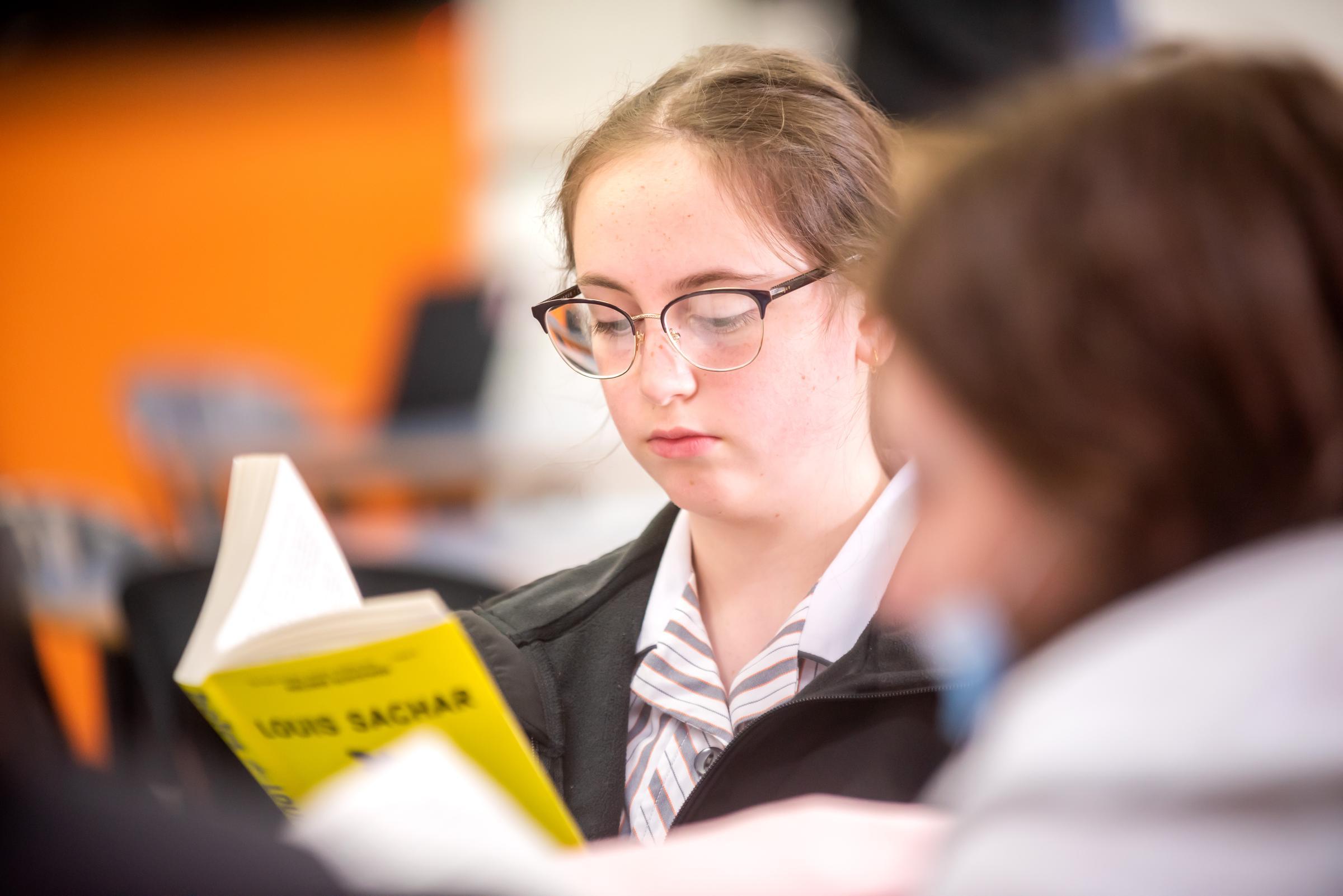English

What's happening in English
Our Year 12 students have finished their first term with a wonderful start. Students have completed their first text response, delving deep into the ideas of the hardships resulting from apartheid in South Africa in Trevor Noah’s Born a Crime.
Please see excerpts from student responses –
"Noah conveys the further obstacles that the influence of patriarchy formed which affected his childhood. Noah uses anecdotes and imagery to depict the patriarchal norms that dominated the views and values of individuals, subsequently impacting his life. Noah implies society to be “men first”, shaping the perspectives of both men and women within South Africa.
Noah utilises perspective and juxtaposition in his portrayal of Abel, his “abusive” stepfather who subscribed to the idea of patriarchy. While Abel appeared to be the “nice guy” in public settings, Noah experienced his harsh personality, reminiscent of a “cobra”. Noah remained powerless in bringing Abel to justice due to the patriarchal perspective shared by society towards individuals such as Abel. His mother Patricia, similarly experienced violence caused by Abel, who wished for a “traditional marriage”, which could never be accepted by Patricia or Noah.
Additionally, Noah symbolises the car that “always broke down” to represent the pain Abel would later inflict on him, seeing the car as the reason for Abel's involvement in his life. Noah condemns the patriarchy and the values it spreads to society, illustrating to the audience how a sexist realm is dominated by turmoil and trauma. Ultimately, Noah uses patriarch to highlight the damaged childhood he lived through.
Heath Agar
"Noah highlights throughout the memoir the moments of important change and reflection it and the significance of hardship as the building blocks for growth and hope. Despite the already difficult nature that the apartheid imposes, it critically focuses on colour as a separation of worth. For Trevor, the utter fact that he was “born a crime”, creates a myriad of roadblocks to his development. His colour dictated his worth, his intellect, his abilities, and his overall acceptance as a human. During a time when many “believed…[in the] aspiration of whiteness” and the “brainwash[ing] to believe [coloured] skin was tainted” only reinforced Trevor's feelings of neglect and further labelled him as an “outsider.”
Through moments of hardship between people, places, and circumstances. Noah highlights this integral need for optimism and hope. Through Noah’s internal monologue, the audience sees his development and reflection.
His mother believes his life became the way it is because of the idea that “Jesus puts obstacles in your way to see if you overcome them.” Whilst Trevor credits this throughout, the memoir concludes that Noah believes his fate became because of his experiences and because of his mother,. So much so that the dedication goes out to his mother, the one he will forever “be in debt to”. The dedication at the beginning and the overall internal reflection are specific tools that Noah used to connect his story to the audience.
Alyx Taylor
Mrs Sarah Wilson
English Leader
